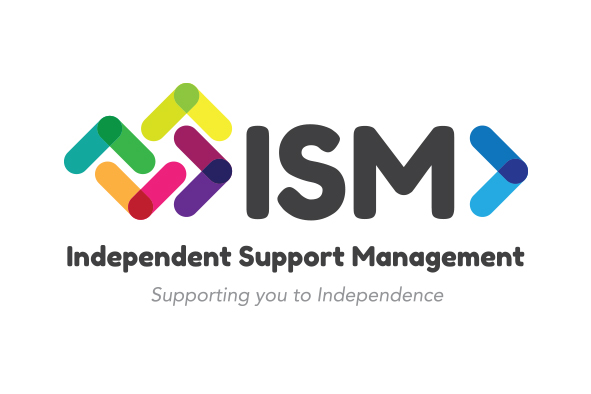🧑💼 Can You Use Capacity Building Funds for Support Workers?
Welcome to ISM's Knowledge Hub! 👋
Today, we’re answering a big question: Can you use your Capacity Building (CB) funds to hire a support worker? Whether you’re planning for a child, an adult, or yourself, understanding how CB funds can help build independence through support workers is key to maximising your NDIS plan. Let’s explore how these funds can work for both children and adults, and how a support worker fits into building essential life skills!
What Are Capacity Building Funds?
Capacity Building funds are a specific part of your NDIS plan aimed at helping participants develop skills and independence. Unlike Core Supports, which cover day-to-day assistance, Capacity Building funds focus on growth and long-term development.
Hiring a support worker with these funds is possible but depends on:
The goals outlined in the participant’s NDIS plan.
The specific Capacity Building categories funded in the plan.
Whether the support worker’s role is directly contributing to skill development.
Let’s break down how this works for both children and adults:
How Support Workers Can Help Children Build Capacity 🧒
Children often focus on developing skills that foster independence at home, school, and in social settings. A support worker can assist in meaningful ways, such as:
Daily Life Skills:
Helping children learn personal care tasks like brushing their teeth, tying shoelaces, or organising their belongings. 🪥👟
Introducing basic household tasks, like tidying their room or packing their school bag. 🏠🎒
Social Skills Development:
Facilitating positive interactions during playdates or group activities. 👫
Helping children communicate more effectively with peers and adults. 💬
Therapeutic Skill Building:
Assisting with therapy exercises at home under the guidance of allied health professionals. 🏃♀️
Community Participation:
Introducing children to public spaces like libraries, parks, or sports clubs. 🌳📚
These supports not only benefit the child but also empower families by providing structured support for skill-building activities.
How Support Workers Can Help Adults Build Capacity 🧑💼
For adults, Capacity Building often centers on achieving independence, engaging in the community, or pursuing employment. A support worker can help adults by focusing on areas such as:
Practical Life Skills:
Teaching budgeting, grocery shopping, and meal preparation. 💵🥦
Providing guidance on household management tasks, like cleaning or organising. 🏠🧹
Community and Social Participation:
Supporting confidence-building activities, like navigating public transport or attending social events. 🚍🤝
Assisting with social skill development for more effective communication. 🗣️
Work Readiness and Learning:
Helping participants practice job-related skills, such as interview preparation or workplace routines. 🏢📄
Supporting organisational skills for educational or vocational goals. 🎓📆
Health and Wellbeing:
Supporting participants in maintaining healthy routines, like meal planning or exercise schedules. 🍎🏋️♂️
Capacity Building Categories That May Fund Support Workers
Both children and adults may use specific Capacity Building categories for support workers when the activity aligns with their goals, such as:
CB – Improved Daily Living:
Skills that improve independence in managing everyday activities.CB – Increased Social and Community Participation:
Training and mentoring to engage with the community and develop social confidence.CB – Improved Learning or Employment:
Capacity building for educational or vocational development, particularly for adults.CB – Improved Relationships:
Social skill-building for more positive interactions at home, school, or work.
Key Considerations When Hiring Support Workers
No matter the age of the participant, using Capacity Building funds for support workers requires careful planning. Here’s what to keep in mind:
Tie It to NDIS Goals:
The support worker’s activities must align with the participant’s goals, such as “developing independence in daily routines” or “building confidence in social settings.”Involve Your NDIS Team:
Consult your Plan Manager, Support Coordinator, or therapists to confirm the appropriateness of using Capacity Building funds for specific supports.Capacity Building vs. Core Supports:
Capacity Building is about skill development, not ongoing assistance for day-to-day needs. Ensure the support worker is actively contributing to capacity-building activities.
Real-Life Examples
For a Child: A 10-year-old participant’s goal is to improve their independence in managing personal care. A support worker helps them develop a morning routine, including brushing their teeth and getting dressed for school.
For an Adult: A 25-year-old participant aims to gain employment. A support worker assists them in creating a resume, practicing job interviews, and organising transportation for job training.
Key Takeaways
Capacity Building funds can be used to hire support workers for both children and adults when their role aligns with specific NDIS goals.
Support workers help participants build essential life skills, from personal care for children to budgeting and job readiness for adults.
Always consult your NDIS team to ensure your plan supports these activities and that funds are used effectively.
We hope this guide has clarified how Capacity Building funds can be used for support workers at any age! At ISM, we’re here to help you make the most of your NDIS plan. Got questions? Reach out to our friendly team—we’re always here to support your journey toward greater independence. 😊💪
